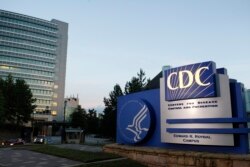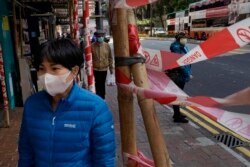Student Union
Neurological, Cardiac Issues Linger in COVID-19 Youth

Young people have suffered less under the COVID-19 virus than older people medically, but experts say the gap has narrowed, and so-called superspreading among the young is a factor.
“The epidemic is changing. People in their 20s, 30s and 40s are increasingly driving its spread,” said Dr. Takeshi Kasai, World Health Organization regional director for the Western Pacific, in a virtual press conference Aug. 18.
“Many are unaware they’re infected — with very mild symptoms or none at all. This can result in them unknowingly passing on the virus to others,” he added.
But on Sept. 28, a 19-year-old college student died, apparently of neurological complications related to the coronavirus.
Chad Dorrill, a sophomore at Appalachian State University in Boone, North Carolina, was diagnosed with COVID-19 in early September and suffered from later complications.
Dorrill developed additional complications even after being cleared by his doctor to return to Boone from his home county, according to an announcement from Appalachian State University Chancellor Sheri Everts.
“All of us must remain vigilant with our safety behaviors wherever we are in our community. We must flatten the curve, but to do so, we must persevere,” Everts said.
Research published Sept. 23 from the Centers for Disease Control and Prevention (CDC) in Atlanta reports that the COVID-19 incidence was highest in adults ages 20 to 29 years during June to August 2020 in the United States.
The report states that “younger adults likely contribute to community transmission of COVID-19,” and that increases in positive test results among adults ages 20 to 39 preceded increases among those 60 and older by an average of 8.7 days across the southern United States in June 2020.
As of Oct. 5, the 18-to-29 age group led all positive cases in the United States with 23.7%, or 1,269,397 cases, according to CDC data. The 50-to-64 age group followed in second with 20.6% of positive cases, or 1,000,476 cases.
Research shows that the coronavirus carries long-term health implications, even in younger adults.
A multistate telephone survey of adults who had symptoms and tested positive for COVID-19 showed 35% had not returned to their usual state of health when interviewed two to three weeks after testing, according to a report by the CDC.
Twenty percent of 18-to-34-year-olds with no chronic medical conditions reported they had not returned to their usual state of health.
A study published this month in the Journal of the American Heart Association found that pediatric patients 18 and younger with acute or prior coronavirus infection can have a broad range of cardiac findings, even though they are experiencing mild symptoms.
While data show that cases were the highest among older adults in the early stages of the pandemic, German epidemiologist Karl Lauterbach suggested in April, when the pandemic was widespread in China and Italy, that thousands of young people may have helped seed the COVID-19 pandemic since last December.
“Experience maybe believes that it’s a severe disease for older people,” Lauterbach told VOA in March. “But we now know that many of the younger people also get severely ill and may sustain long-term consequences.”
“They get a very severe and atypical pneumonia and may end up in the [intensive care unit],” Lauterbach, a scientist and member of Germany’s Bundestag Parliament, said. “And they have way more severe disease than we initially believed.”
In December 2019, as COVID-19 was emerging in China, colleges and universities worldwide released hundreds of thousands of students home for winter break. Many of the more than 360,000 Chinese students who study in the U.S. returned to China for the holiday.
A month later, they and other international students returned to their campuses in the U.S. and around the world as COVID-19 was gaining speed.
In March, U.S. colleges and universities began their spring breaks, times when students traditionally head to warm beach destinations, such as in Florida, Texas and Mexico, to blow off steam after studying for midterms.
Dr. Sean O’Leary, associate professor of pediatrics-infectious diseases at the University of Colorado Anschutz Medical Campus, told VOA that in response to the wave of COVID-19 cases in the U.S., many universities shut down their campuses, sent students home or asked them to return from spring break to clean out their rooms, and then put them on airplanes for points around the country.
“From the perspective of the U.S. as a country, was that the best choice?” O’Leary asked. Campuses were “one place where we knew there was widespread transmission.”
Lauterbach said the disease is insidious in younger people because they typically show only mild or no symptoms, and scientists now believe that 80% of COVID-19 transmission occurs among those who don’t seem ill.
A study by the American Academy of Pediatrics looked at more than 2,000 youths ages 18 and younger in China.
Doctors from Shanghai Children’s Medical Center and Shanghai Jiao Tong University School of Medicine wrote that where the virus first emerged, in Hubei province, 13% of confirmed cases had asymptomatic infection, a rate that “almost certainly understates the true rate of asymptomatic infection, since many asymptomatic children are unlikely to be tested.”
Research published Aug. 6 by JAMA Internal Medicine found that many COVID-19 patients remained asymptomatic for a prolonged period, and the viral load was similar to that of symptomatic patients.
Older children have also been shown to transmit the coronavirus as much as adults, according to a large study from South Korea.
The study, which analyzed nearly 65,000 people in South Korea, found that children younger than 10 were around half as likely to spread the virus as adults. However, young people ages 10 to 19 years old are more likely than other age groups to disperse COVID-19 into households.
Of 10,592 household contacts, 11.8% had COVID-19, with 18.6% being index patients ages 10 to 19. It was 1.9% for the 48,481 non-household contacts.
“We should make it clear to younger people that if they behave in a careless fashion, that they are not only putting themselves, their peers, older people and peers [with underlying conditions] at risk,” Lauterbach said, “but they put themselves at risk and their best friends. So, we need to convey a message that this is a serious disease for all age groups.”
“It is quite clear that not many young people die from the disease,” Lauterbach said.
“But it is astonishing that we see very, let's say, remarkable numbers of younger people in the ICU and also often on ventilator support,” he said.
“Currently, we do not know whether they will fully recover their lung function or not. We definitely do not know that for certain. So, we have to take this way more seriously than we did in the past.”
Kathleen Struck contributed to this report.
See all News Updates of the Day
- By VOA News
Competition grows for international students eyeing Yale

It’s tough to gain admission to Yale University, and it’s getting even tougher for international students as standout students from around the world set their sights on Yale.
The Yale Dale News, the campus newspaper, takes a look at the situation here.
- By VOA News
Student from Ethiopia says Whitman College culture made it easy to settle in

Ruth Chane, a computer science major from Ethiopia, writes about her experiences settling into student life at Whitman College in the U.S. state of Washington.
"The community at Whitman College made sure I felt welcomed even before I stepped foot on campus," she says.
- By VOA News
Claremont Colleges student gets a shock when she heads home to Shanghai

In The Student Life, the student newspaper for the Claremont Colleges, a consortium of five liberal art colleges and two graduate schools in Claremont, California, student Rochelle Lu writes about readjusting to her Shanghai home after spending a semester in the United States.
- By VOA News
Cedarville University aims to ease transition for international students

Cedarville University in the U.S. state of Ohio says it’s got more than 140 international students representing 44 countries.
Here, the school interviews Jonathan Sutton, director of international student services. He talks about his job and the opportunities for international students on campus.
- By VOA News
Morehouse College offers prospective students tips on applying and thriving

Morehouse College, a private, historically Black liberal arts college in the U.S. state of Georgia, offers a guide for international students interested in attending the school.
Among the tips to apply and thrive at Morehouse:
- Take advantage of the school’s orientation program
- Turn to the school’s Center for Academic Success for tutoring, support and more
- Immerse yourself in campus life via clubs and societies
- By Reuters
US reviews Columbia University contracts, grants over antisemitism allegations

The administration of President Donald Trump said on Monday it will review Columbia University's federal contracts and grants over allegations of antisemitism, which it says the educational institution has shown inaction in tackling.
Rights advocates note rising antisemitism, Islamophobia and anti-Arab bias since U.S. ally Israel's devastating military assault on Gaza began after Palestinian Hamas militants' deadly October 2023 attack.
The Justice Department said a month ago it formed a task force to fight antisemitism. The U.S. Departments of Health and Education and the General Services Administration jointly made the review announcement on Monday.
"The Federal Government's Task Force to Combat Anti-Semitism is considering Stop Work Orders for $51.4 million in contracts between Columbia University and the Federal Government," the joint statement said.
The agencies said no contracting actions had been taken yet.
"The task force will also conduct a comprehensive review of the more than $5 billion in federal grant commitments to Columbia University."
The agencies did not respond to requests for comment on whether there were similar reviews over allegations of Islamophobia and anti-Arab bias.
Columbia had no immediate comment. It previously said it made efforts to tackle antisemitism.
College protests
Trump has signed an executive order to combat antisemitism and pledged to deport non-citizen college students and others who took part in pro-Palestinian protests.
Columbia was at the center of college protests in which demonstrators demanded an end to U.S. support for Israel due to the humanitarian crisis caused by Israel's assault on Gaza. There were allegations of antisemitism and Islamophobia in protests and counter-protests.
During last summer's demonstrations around the country, classes were canceled, some university administrators resigned and student protesters were suspended and arrested.
While the intensity of protests has decreased in recent months, there were some demonstrations last week in New York after the expulsion of two students at Columbia University-affiliated Barnard College and after New York Governor Kathy Hochul ordered the removal of a Palestinian studies job listing at Hunter College.
A third student at Barnard College has since been expelled, this one related to the occupation of the Hamilton Hall building at Columbia last year.
Canada’s immigration overhaul signals global shift in student migration
From Europe to North America, nations are tightening their immigration policies. Now Canada, long seen as one of the world's most welcoming nations, has introduced sweeping changes affecting international students. The reforms highlight a growing global trend toward more restrictive immigration policies. Arzouma Kompaore reports from Calgary.
Trump administration opens antisemitism inquiries at 5 colleges, including Columbia and Berkeley

The Trump administration is opening new investigations into allegations of antisemitism at five U.S. universities including Columbia and the University of California, Berkeley, the Education Department announced Monday.
It's part of President Donald Trump's promise to take a tougher stance against campus antisemitism and deal out harsher penalties than the Biden administration, which settled a flurry of cases with universities in its final weeks. It comes the same day the Justice Department announced a new task force to root out antisemitism on college campuses.
In an order signed last week, Trump called for aggressive action to fight anti-Jewish bias on campuses, including the deportation of foreign students who have participated in pro-Palestinian protests.
Along with Columbia and Berkeley, the department is now investigating the University of Minnesota, Northwestern University and Portland State University. The cases were opened using the department's power to launch its own civil rights reviews, unlike the majority of investigations, which stem from complaints.
Messages seeking comment were left with all five universities.
A statement from the Education Department criticized colleges for tolerating antisemitism after Hamas' Oct. 7, 2023, attack on Israel and a wave of pro-Palestinian protests that followed. It also criticized the Biden administration for negotiating "toothless" resolutions that failed to hold schools accountable.
"Today, the Department is putting universities, colleges, and K-12 schools on notice: this administration will not tolerate continued institutional indifference to the wellbeing of Jewish students on American campuses," said Craig Trainor, the agency's acting assistant secretary for civil rights.
The department didn't provide details about the inquiries or how it decided which schools are being targeted. Presidents of Columbia and Northwestern were among those called to testify on Capitol Hill last year as Republicans sought accountability for allegations of antisemitism. The hearings contributed to the resignation of multiple university presidents, including Columbia's Minouche Shafik.
An October report from House Republicans accused Columbia of failing to punish pro-Palestinian students who took over a campus building, and it called Northwestern's negotiations with student protesters a "stunning capitulation."
House Republicans applauded the new investigations. Representative Tim Walberg, chair of the Education and Workforce Committee, said he was "glad that we finally have an administration who is taking action to protect Jewish students."
Trump's order also calls for a full review of antisemitism complaints filed with the Education Department since Oct. 7, 2023, including pending and resolved cases from the Biden administration. It encourages the Justice Department to take action to enforce civil rights laws.
Last week's order drew backlash from civil rights groups who said it violated First Amendment rights that protect political speech.
The new task force announced Monday includes the Justice and Education departments along with Health and Human Services.
"The Department takes seriously our responsibility to eradicate this hatred wherever it is found," said Leo Terrell, assistant attorney general for civil rights. "The Task Force to Combat Anti-Semitism is the first step in giving life to President Trump's renewed commitment to ending anti-Semitism in our schools."
- By VOA News
STEM, business top subjects for international students

The Times of India breaks down the most popular subjects for international students to study in the U.S.
STEM and business lead the pack. Read the full story here. (January 2025)
- By VOA News
Safety and visa difficulties among misconceptions about US colleges

U.S. News & World report addresses some of the misconceptions about U.S. colleges and universities, including the difficulty of getting a visa.
Read the full story here. (January 2025)
- By VOA News
Work opportunities help draw international students to US schools

US News & World Report details the three top factors in foreign students' decision to study in the U.S. They include research opportunities and the reputation of U.S. degrees. Read the full story here. (December 2024)
- By VOA News
British student talks about her culture shock in Ohio

A British student who did a year abroad at Bowling Green State University in Ohio talks about adjusting to life in America in a TikTok video, Newsweek magazine reports.
Among the biggest surprises? Portion sizes, jaywalking laws and dorm room beds.
Read the full story here. (December 2024)
- By VOA News
Harvard's Chan School tells international students what to expect

Harvard's T.H. Chan School of Public Health reaches out to international students by detailing the international student experience at the school.
Learn more about housing, life in Boston and more here.
- By Reuters
China unveils plan to build 'strong education nation' by 2035

China issued its first national action plan to build a "strong education nation" by 2035, which it said would help coordinate its education development, improve efficiencies in innovation and build a "strong country."
The plan, issued Sunday by the Communist Party's central committee and the State Council, aims to establish a "high quality education system" with accessibility and quality "among the best in the world."
The announcement was made after data on Friday showed China's population fell for a third consecutive year in 2024, with the number of deaths outpacing a slight increase in births, and experts cautioning that the downturn will worsen in the coming years.
High childcare and education costs have been a key factor for many young Chinese opting out of having children, at a time when many face uncertainty over their job prospects amid sluggish economic growth.
"By 2035, an education power will be built," the official Xinhua news agency said, adding that China would explore gradually expanding the scope of free education, increase "high-quality" undergraduate enrolment, expand postgraduate education, and raise the proportion of doctoral students.
The plan aims to promote "healthy growth and all-round development of students," making sure primary and secondary school students have at least two hours of physical activity daily, to effectively control the myopia, or nearsightedness, and obesity rates.
"Popularizing" mental health education and establishing a national student mental health monitoring and early warning system would also be implemented, it said.
It also aims to narrow the gap between urban and rural areas to improve the operating conditions of small-scale rural schools and improve the care system for children with disabilities and those belonging to agricultural migrant populations.
The plan also aims to steadily increase the supply of kindergarten places and the accessibility of preschool education.
- By VOA News
A look at financial aid options for international graduate students in US

The Open Notebook, a site focusing on educating journalists who cover science, has complied a list of U.S. graduate program financial aid information for international students.








